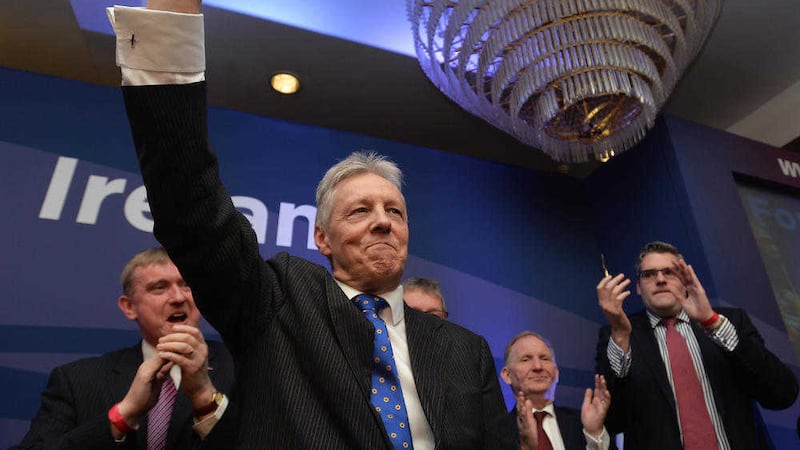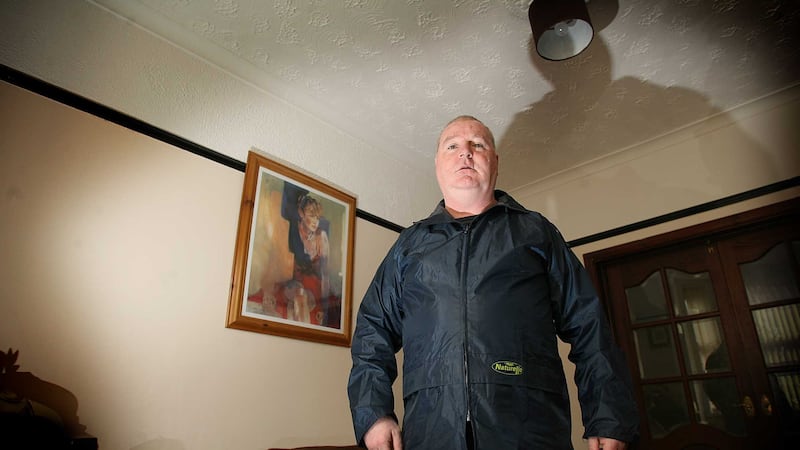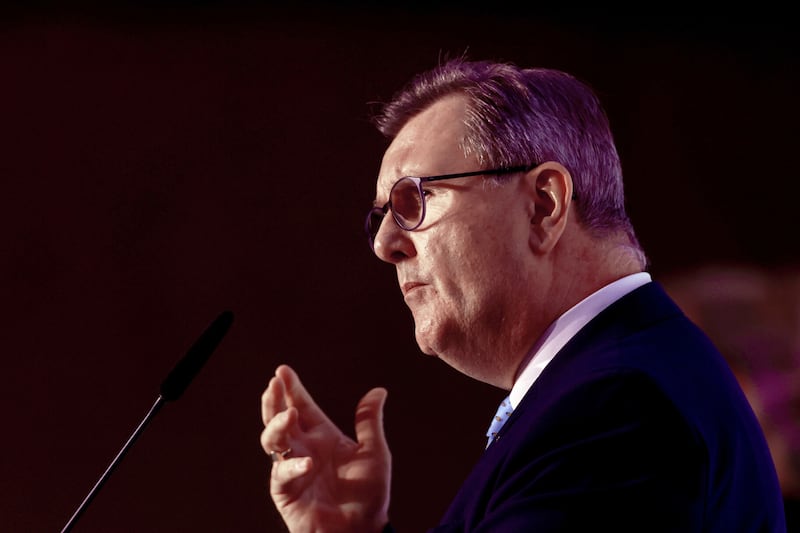Peter Robinson's final speech as leader didn’t end with the usual gung-ho crescendo but rather an understated "May God bless you all".
Though he left the stage to a loud and prolonged ovation, accompanied by the usual frenzied Union flag waving, the atmosphere thereafter among the party faithful at La Mon hotel was rather subdued.
Saturday marked the end of an era for the DUP, and accordingly there were tears shed as the 66-year-old East Belfast MLA said his final public goodbyes.
The leadership baton will be officially handed over in time for electioneering proper to get under way in the new year. Nigel Dodds is universally tipped to succeed Mr Robinson in the DUP’s top job with Arlene Foster assuming the role of Stormont first minister. If there is any significant opposition to the proposed new coupling at the top of the party it remained inconspicuous at Saturday's gathering.
As the man pointed out himself, Peter Robinson leaves the DUP in pretty good health. It is the north’s largest party and, a minor electoral disaster notwithstanding, should emerge from May's assembly election in a similarly strong position. Mr Robinson’s upbeat assessment of the state of the region he's governed for the past eight-odd years is more questionable.
His assertion that "Ulster" was no longer at a crossroads but "on a motorway on a clear path to a better future", prompted quips among the press corps about snarl-ups at Sandyknowes as a result of terminal roadworks.
Last week's agreement was central to the choreography of the DUP leader's departure and some say to his legacy as well. For all its financial muddle and glaring omissions, he has taken ownership of the deal and in his final address to conference as leader did his utmost to sell it to the party. Ominously, however, he warned "that no deal is ever the last deal – there is no finish line in politics".
With the on-off non-aggression pact with Sinn Féin reinstated after the signing of 'A Fresh Start', criticisms of republicans were muted. The main target, as one would expect with an election looming, was Mike Nesbitt and the Ulster Unionists, who made most political capital from the crisis around August's shooting of Kevin McGuigan and the subsequent 'hokey-cokey' approach to ministries adopted by the DUP.
The departure of the 'master tactitian' may signal an end to similar short-term solutions when crises arise but let’s not expect any major transformation in the DUP when Mr Robinson leaves, as his mooted replacements reflect continuity in ideology and approach.
Perhaps the transition at the top of the DUP is representative of the party and the path it takes, where it seeks to create an illusion of dynamism while overseeing inertia?









